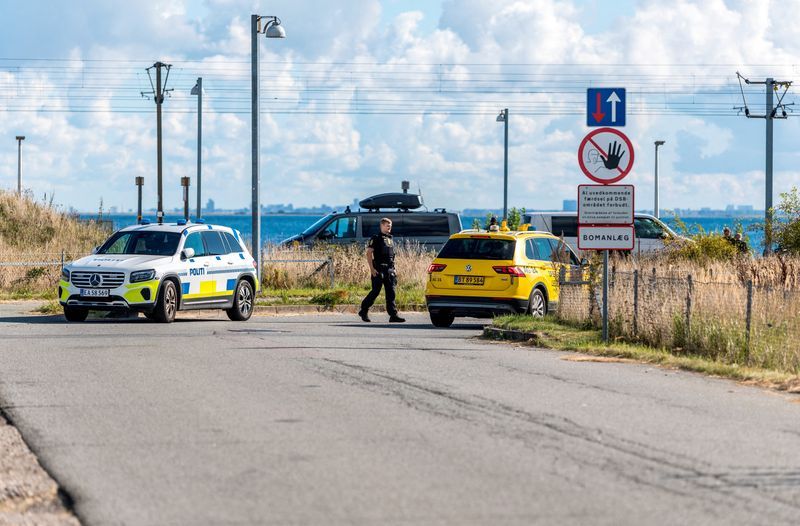# Drones, Systems Hack Test Europe's Aviation Security Defences
A recent series of disruptions to major European airports has raised concerns about the vulnerability of the region's aviation infrastructure to coordinated attacks. The incidents, which include drone incursions in Copenhagen and Oslo, have highlighted the need for more proactive measures to mitigate against risks to cybersecurity, navigation systems, and overall safety.
## A Growing Threat Landscape
In Denmark, drones halted flights at Copenhagen's main airport on Monday for several hours, with Danish Prime Minister Mette Frederiksen linking the incident to a series of suspected Russian drone incursions and other disruptions across Europe. This was followed by a separate drone incident in Norwegian capital Oslo, days after hackers hit check-in systems with a ransomware attack at airports including London's Heathrow, Europe's busiest, as well as in Berlin and Brussels.
## Experts Weigh In
Jukka Savolainen, network director at the European Centre of Excellence for Countering Hybrid Threats, believes that these incidents are part of a larger trend. "First is to test how the method works," he said. "In this case, it leads to closing down airports." The second testing point, according to Savolainen, is how countries react to such threats.
## Vulnerability of the Civil Aviation Sector
The disruptions have laid bare how vulnerable the civil aviation sector's operations can be, with outages down the supply chain rippling across airports and airline operations, leading to hundreds of delayed and cancelled flights. "This attack shows just how vulnerable highly connected industries like aviation can be," said Bart Salaets at U.S. cybersecurity firm F5.
## Regulators Must Act
Analysts and experts point to an increase in activity by possible Russian actors across Europe in recent weeks as an impetus for regulators to offer clearer guidelines and encourage more action to defend critical infrastructure. "Airlines are looking at governments and authorities, airports the same," said Eric Schouten, director of security intelligence and aviation advisory firm Dyami.
## Challenges Ahead
Upgrading technology at airports, such as jamming tools, lasers, and trackers, to mitigate risks from hacks and drones can cost millions of dollars and be a cumbersome process. Airline trade body IATA also said that anti-drone technology was still developing and was often beyond an airport's budget. In the United States, the FAA says that it receives more than 100 reports of drone sightings near airports each month.
## A Digital World of Vulnerability
Jake Moore, an advisor at ESET, a Slovakian cybersecurity firm, said that when aviation supply chains were attacked, it created disruption on a global scale. "Regulators need to tighten standards even more for critical aviation IT suppliers," he said. Whether this was a deliberate disruption attack, a financially motivated ransom or a major technical failure, the impact demonstrates how fragile such systems can be in a digitally focused world.
## A Call for Action
As Europe's eastern edge faces a war with Russia's 2022 full-scale invasion of Ukraine, security concerns in civil airspace are gaining prominence. Regulators must take proactive steps to mitigate against risks to cybersecurity, navigation systems, and overall safety. The cost and burden of upgrading infrastructure can prevent airports from moving fast to react, but the alternative – increased disruption and delay – is too great to ignore.
## Conclusion
The recent disruptions to major European airports highlight the vulnerability of the region's aviation infrastructure to coordinated attacks. Experts warn that regulators must take more proactive steps to mitigate against risks to cybersecurity, navigation systems, and overall safety. As the threat landscape continues to evolve, it is essential for governments, airlines, and airports to work together to strengthen their defenses and ensure the safe and secure operation of Europe's skies.
### Sources:
* Reuters * European Centre of Excellence for Countering Hybrid Threats * IATA (International Air Transport Association) * ESET (Elastic Security Enterprise) * FAA (Federal Aviation Administration)
Note: The article has been rewritten to improve readability, clarity, and flow. HTML tags have been used to format the content into paragraphs (
tags) for better readability.
